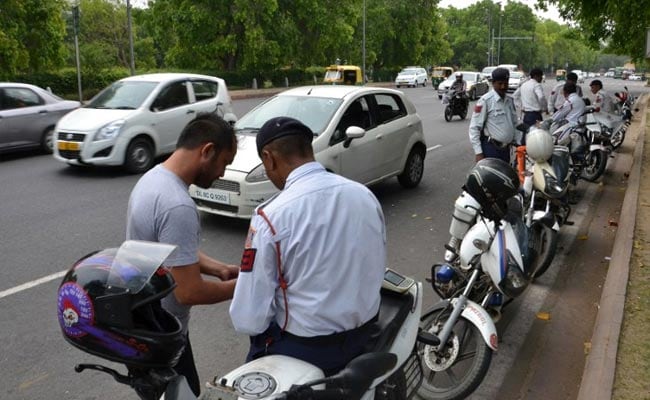
Smog hits both Delhi and Beijing during peak winter, seriously affecting people's health. (AFP Photo)
Beijing:
China has come out in support of the odd-even traffic scheme, the second phase of which began on Friday in Delhi with a view to battle pollution.
"The traffic situation in Delhi can become better and traffic structure be optimised if the odd-even license plate formula is followed properly," a top official in Beijing's transport department told IANS.
"The life of people can improve (in Delhi)," said Zhou Tian, deputy director in Decongestion Department of Beijing Municipal Commission of Transport.
With the income of middle class groups rising in both Delhi and Beijing, the demand for cars has shot up, adding to traffic woes and worsening pollution.
Smog hits both cities during peak winter, seriously affecting people's health.
Though Beijing resorted to the odd-even traffic restriction scheme ahead of the 2008 Olympics, Delhi tried it out successfully in January after the judiciary called the Indian capital a virtual gas chamber.
Zhou admitted that the scheme did affect the daily life of people in Beijing.
"We adopt odd-even license plates formula only when there are major events in Beijing. It has been very successful, but it affects the daily life of citizens in Beijing," he said.
Delhi Chief Minister Arvind Kejriwal, who figured in the Fortune Magazine's list of world's 50 greatest leaders for experimenting with the idea which many were sceptical of, wants the odd-even traffic scheme to be implemented every month.
Of the nearly nine million vehicles in Delhi, almost a third are cars. Beijing hosts 5.5 million cars but the Chinese capital boasts of a far better public transport than Delhi.
While Beijing's subway network is the second longest after Shanghai, there are nearly 25,000 public transport buses against the fleet of some 4,500 in Delhi.
Over the years, Beijing has been encouraging people to take to public transport. It is also promoting e-bikes that have largely replaced petrol-driven two vehicles.
(This story has not been edited by NDTV staff and is auto-generated from a syndicated feed.)
"The traffic situation in Delhi can become better and traffic structure be optimised if the odd-even license plate formula is followed properly," a top official in Beijing's transport department told IANS.
"The life of people can improve (in Delhi)," said Zhou Tian, deputy director in Decongestion Department of Beijing Municipal Commission of Transport.
With the income of middle class groups rising in both Delhi and Beijing, the demand for cars has shot up, adding to traffic woes and worsening pollution.
Smog hits both cities during peak winter, seriously affecting people's health.
Though Beijing resorted to the odd-even traffic restriction scheme ahead of the 2008 Olympics, Delhi tried it out successfully in January after the judiciary called the Indian capital a virtual gas chamber.
Zhou admitted that the scheme did affect the daily life of people in Beijing.
"We adopt odd-even license plates formula only when there are major events in Beijing. It has been very successful, but it affects the daily life of citizens in Beijing," he said.
Delhi Chief Minister Arvind Kejriwal, who figured in the Fortune Magazine's list of world's 50 greatest leaders for experimenting with the idea which many were sceptical of, wants the odd-even traffic scheme to be implemented every month.
Of the nearly nine million vehicles in Delhi, almost a third are cars. Beijing hosts 5.5 million cars but the Chinese capital boasts of a far better public transport than Delhi.
While Beijing's subway network is the second longest after Shanghai, there are nearly 25,000 public transport buses against the fleet of some 4,500 in Delhi.
Over the years, Beijing has been encouraging people to take to public transport. It is also promoting e-bikes that have largely replaced petrol-driven two vehicles.
(This story has not been edited by NDTV staff and is auto-generated from a syndicated feed.)
Track Latest News Live on NDTV.com and get news updates from India and around the world

